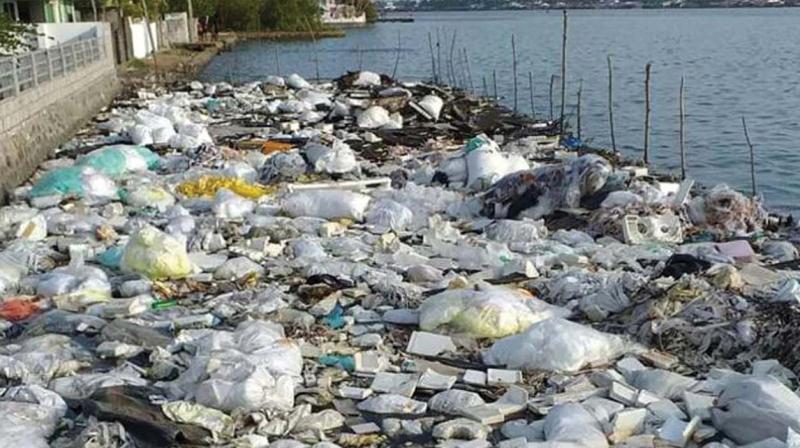Alappuzha: Shut sewage plant increases pollution in Vembanad lake

Alappuzha: While houseboat tourism is booming in Kuttanad, the Vembanad lake is getting polluted destroying its fish wealth.
Adding to the woes, the sewage treatment plant in Kunnummel village in H. Block of Kuttanad, meant to treat the sewage waste of houseboats, has been shut down for upgradation for a month. Local activists have demanded urgent action to keep the plant operational to stop the increasing pollution. K.M. Poovu, secretary, Vembanad Kayal Sampra-kshana Samiti, said that the dumping of septage and plastics from houseboats in the lake had posed a great threat to the river ecosystem.
“The shutting down of the sewage treatment plant will create a crisis in the river system. As a result of the introduction of the houseboats, the fresh water lake has turned black affecting the fish wealth,” he said.
According to him, the 7,500 tonnes of fish wealth in the river is depleting every year. As per the latest fish survey report, the lake has only 98 fish varieties while it had more than 150 species a decade ago.
The sewage treatment plant, which was set up in November 2013, was shut after the District Pollution Control Board asked the District Tourism Promotion Council (DTPC) to upgrade it. The plant is located in 14 cents of land where four houseboats could treat 180,000 litres of waste daily.
The houseboats have the capacity to store the waste for three months and get it treated at the plant.
A certificate from the DTPC on waste management is mandatory for getting the approval of the Kerala State Pollution Control Board.
B. Biju, environmental engineer, PCB Alappuzha, said that DTPC had submitted a letter a month ago saying they were unable to run the plant and therefore it was shut. There were a lot of anomalies in its functioning. Currently, all houseboats plying in Alappuzha discharge sewage into the lake. “We have informed the district collector and tourism director about it,” he said.
M. Malin, secretary, DTPC, admitted that they shut the plant without setting up any alternative mechanism to treat the waste generated in the houseboats. It was shut for modification on the basis of the instruction by Suchitwa Mission and PCB officials, he said.
At least 1,200 houseboats are plying in the lake. In July 2014 an affidavit submitted by the Kerala Chief Secretary in the Supreme Court had admitted that houseboats were instrumental in polluting Vembanad resulting in the multiplication of e-coli bacteria in the backwaters, one of the largest river ecosystems in the country. The lake was declared as a Ramsar site of international importance in 2002.
The lake that spans over 2,033 sq km in three districts was found to be the most polluted water body in the world in a study carried out by Alfred Wegener Institute (AWI), Helmholtz Centre for Polar and Marine Research in Germany with the help of Mahatma Gandhi University, Kottayam, in 2017.

